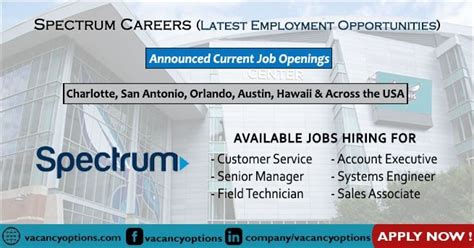Naval Careers

The naval career path offers a unique and exciting journey, presenting a range of opportunities for those seeking a life of adventure, service, and expertise in maritime operations. With a rich history spanning centuries, naval forces continue to play a crucial role in national defense, international relations, and humanitarian missions.
Embarking on a naval career demands dedication, discipline, and a willingness to face the challenges of life at sea. From commanding officers to engineers, medical personnel to cooks, each role contributes to the seamless functioning of a naval vessel and the broader mission of the navy.
This in-depth exploration will guide you through the diverse aspects of naval careers, shedding light on the various roles, the training and education required, the lifestyle and culture onboard, and the benefits and opportunities that naval service offers.
Diverse Roles in the Naval Forces

The naval forces encompass a vast array of specialized roles, each vital to the smooth operation of naval vessels and the achievement of strategic objectives. Here’s an overview of some key roles:
Officers
Naval officers are the leaders and decision-makers on board ships and in shore-based roles. They undergo extensive training and education, typically holding a bachelor’s degree or higher in fields such as engineering, science, or military strategy. Officers may specialize in various fields, including:
- Commanding Officers: Responsible for the overall operation and safety of the ship, commanding officers make critical decisions regarding navigation, mission execution, and crew management.
- Operations Officers: These officers oversee the planning and execution of naval operations, including combat, search and rescue, and humanitarian missions.
- Engineering Officers: Specialized in naval engineering, these officers manage the ship’s mechanical, electrical, and propulsion systems, ensuring their efficient operation and maintenance.
- Intelligence Officers: Intelligence officers gather, analyze, and interpret intelligence data to support naval operations and decision-making.
- Weapons Officers: In charge of the ship’s weaponry and defense systems, weapons officers ensure the effective deployment of naval firepower.
Enlisted Personnel
Enlisted personnel form the backbone of the naval forces, carrying out a wide range of critical tasks. They typically undergo specialized training based on their chosen career path, which may include:
- Deck Ratings: Responsible for the operation and maintenance of the ship’s deck equipment, including navigation, steering, and anchoring systems.
- Engineering Ratings: Working under the guidance of engineering officers, these personnel maintain and repair the ship’s machinery and systems.
- Combat Ratings: Specialized in combat operations, these ratings operate and maintain the ship’s weapons systems and engage in combat training.
- Supply Ratings: Managing the ship’s stores and supplies, supply ratings ensure the crew has access to necessary provisions and equipment.
- Medical Ratings: Providing medical care to the crew, these personnel may include nurses, medics, and dental technicians.
| Role | Average Salary |
|---|---|
| Commanding Officer | $80,000 - $120,000 |
| Operations Officer | $70,000 - $90,000 |
| Engineering Officer | $65,000 - $85,000 |
| Deck Rating | $40,000 - $60,000 |
| Engineering Rating | $35,000 - $55,000 |
| Combat Rating | $45,000 - $65,000 |

These roles, among many others, showcase the diversity and specialization within the naval forces, offering a range of career paths to suit various interests and skill sets.
Education and Training for Naval Careers

The path to a naval career begins with a rigorous education and training regimen designed to prepare individuals for the unique challenges of life at sea and the specific demands of their chosen role.
Officer Training
Officer training typically involves a combination of academic study and practical training. Future officers may pursue a degree in a relevant field at a civilian university or attend a military academy specifically designed for officer training. Courses may include naval science, engineering, oceanography, and leadership studies.
Practical training often takes place at naval training centers, where officers-in-training learn the hands-on skills required for their role. This may include navigation, ship handling, weapons training, and leadership exercises.
Enlisted Training
Enlisted personnel typically undergo a shorter, more specialized training program. This often involves a combination of classroom instruction and practical training, focusing on the specific skills required for their chosen career path.
For instance, deck ratings may learn navigation and ship handling, while engineering ratings focus on mechanical and electrical systems. Combat ratings undergo rigorous weapons and combat training, while medical ratings receive specialized medical training tailored to the unique challenges of providing care in a maritime environment.
Both officers and enlisted personnel may also receive additional training throughout their careers, staying updated with the latest advancements in technology, tactics, and leadership.
Life and Culture Onboard
Life onboard a naval vessel is a unique experience, characterized by a strong sense of community, discipline, and shared purpose. The culture onboard is often shaped by a blend of tradition and modern innovation, with a focus on teamwork, respect, and professional excellence.
Daily Routine
A typical day onboard a naval vessel begins with a morning routine, often starting early to prepare for the day’s activities. This may include physical training, maintenance checks, and briefings on the day’s operations.
Throughout the day, personnel carry out their specific duties, which may involve operating and maintaining equipment, conducting drills and exercises, or providing support services. Mealtimes are a crucial part of the day, offering a break and an opportunity for the crew to come together.
Evenings often involve further training, maintenance, and personal time. The crew may gather for social activities, study, or relaxation, depending on the ship's schedule and mission.
Community and Camaraderie
Life at sea fosters a strong sense of community and camaraderie. The close quarters and shared experiences create deep bonds among the crew. This community spirit extends beyond the ship, with many naval personnel maintaining lifelong friendships and a sense of belonging to a unique, elite group.
Traditions and Ceremonies
Naval forces have a rich tradition of ceremonies and rituals, which serve to honor achievements, mark significant events, and maintain a sense of history and identity. These traditions vary across different naval forces but often include:
- Commissioning and Decommissioning Ceremonies: These mark the beginning and end of a ship’s service, often involving a formal ceremony and the raising or lowering of the ship’s colors.
- Change of Command Ceremonies: When a new commanding officer takes over, a formal ceremony is held to transfer responsibility and honor the outgoing officer.
- Promotions and Awards Ceremonies: Recognizing the achievements and milestones of personnel, these ceremonies are a source of pride and motivation.
- Passage Rituals: Naval forces often have unique rituals to mark the crossing of significant geographical landmarks, such as the equator or specific longitudes.
Benefits and Opportunities of Naval Service
A career in the naval forces offers a range of benefits and opportunities, both during service and beyond.
Career Development and Advancement
Naval forces provide structured career paths with opportunities for advancement based on merit and performance. Officers and enlisted personnel can expect to take on increasing levels of responsibility and leadership as they progress in their careers.
Regular training and education ensure that personnel stay up-to-date with the latest advancements and are prepared for the challenges of their roles. Opportunities for specialization and further education are also available, allowing individuals to develop expertise in specific areas of naval operations.
Travel and Adventure
A naval career offers the opportunity to travel the world and experience diverse cultures. Naval vessels often operate in international waters, and port visits provide a chance to explore new places and interact with people from different backgrounds.
The adventure of life at sea, with its unique challenges and experiences, is a constant source of excitement and personal growth. From navigating the open ocean to participating in high-stakes operations, naval personnel live a life of constant discovery and challenge.
Skills and Experience
The skills and experience gained in a naval career are highly transferable and valued in a range of industries. Naval personnel develop expertise in leadership, teamwork, problem-solving, and adaptability, which are essential in any professional setting.
The technical skills learned, such as engineering, navigation, or weapons systems operation, can open doors to specialized careers in the maritime industry, defense contracting, or even in academia.
Veteran Benefits
Many countries offer a range of benefits to veterans of their naval forces, including access to healthcare, education funding, and priority in government employment. These benefits recognize the service and sacrifice of naval personnel and aim to support their transition to civilian life.
Veterans may also find that their naval experience enhances their professional prospects, with many employers recognizing the unique skills and discipline that naval service imparts.
The Future of Naval Careers

The naval forces are constantly evolving to meet the challenges of the modern world. As technology advances and global dynamics shift, the roles and missions of naval personnel are adapting to ensure continued effectiveness and relevance.
Emerging Technologies
Advancements in technology are transforming the naval landscape. From unmanned vehicles and artificial intelligence to advanced weaponry and cyber capabilities, naval forces are integrating new technologies to enhance their operational capabilities.
This presents exciting opportunities for naval personnel to develop expertise in cutting-edge fields and contribute to the innovation and development of naval technology.
Global Challenges
The changing global landscape, with its complex political, economic, and environmental challenges, is shaping the future of naval operations. Naval forces are increasingly called upon to address a range of issues, from piracy and terrorism to natural disasters and humanitarian crises.
This evolving role demands a versatile and adaptive naval force, capable of responding to a wide range of scenarios and working collaboratively with other organizations and nations.
Environmental Considerations
With growing awareness of the environmental impact of naval operations, the future of naval careers also involves a focus on sustainability and environmental stewardship. Naval forces are exploring ways to reduce their carbon footprint, adopt more sustainable practices, and contribute to global efforts to protect the marine environment.
This includes the development of green technologies, the adoption of sustainable practices onboard ships, and the integration of environmental considerations into naval training and operations.
What are the basic requirements to join the naval forces?
+The basic requirements typically include being a citizen of the country’s naval force, meeting certain age and health criteria, and having a high school diploma or equivalent. Additional requirements may vary depending on the specific role and country.
How long is the training period for naval careers?
+Training periods vary depending on the role and country. Officer training can range from several months to several years, while enlisted training typically lasts several weeks to a few months. Ongoing training and education are common throughout naval careers.
What are the main challenges of a naval career?
+Naval careers present unique challenges, including the demanding physical and mental aspects of life at sea, the responsibility of operating advanced technology and weaponry, and the potential for deployment in high-risk situations. The close quarters and unique culture of naval vessels also require adaptation and a strong sense of community.



